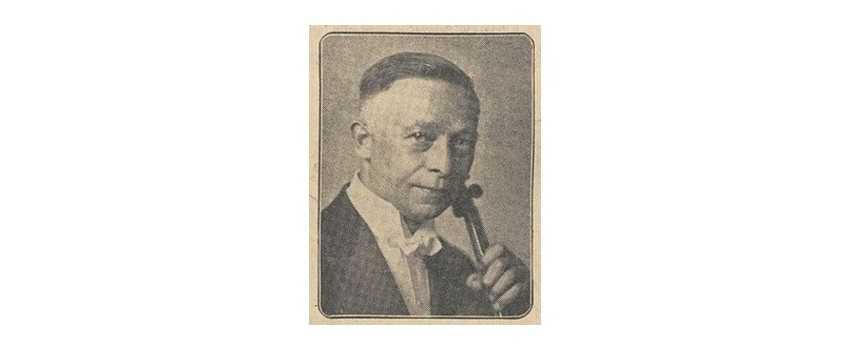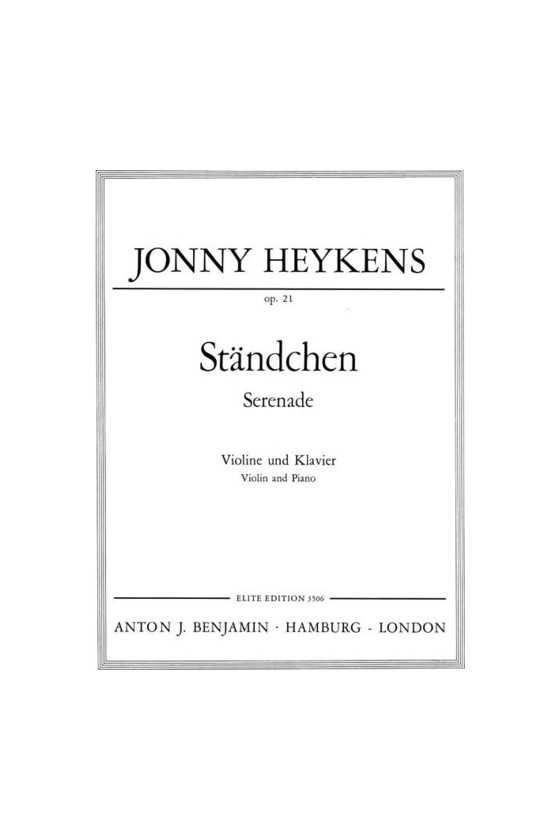Heykens, Jonny
Jonny Heykens, a renowned composer from the Netherlands, left an indelible mark on the world of music with his enchanting melodies and compositions. Born on September 24, 1884, in Groningen, Heykens' musical journey was a blend of success, popularity, and controversy. From his early years studying under the tutelage of Eugène Ysae to his rise as a composer and performer, Heykens' work captivated audiences across Europe. However, his association with the National Socialist Party during World War II cast a shadow over his legacy.
Early Years and Musical Education
Heykens' passion for music blossomed at a young age. Growing up in Groningen, he displayed a natural talent for the violin. Recognizing his potential, Heykens' parents enrolled him at the Brussels Conservatory, where he had the privilege of being taught by the esteemed violinist Eugène Ysae. Under Ysae's guidance, Heykens honed his skills and developed a deep understanding of music theory and composition.
The Birth of a Composer
After completing his education, Heykens embarked on a career as a violinist, joining various orchestras and performing across Europe. However, it was in 1914 that he made a significant decision that would shape his future. Heykens formed his own orchestra in Groningen, marking the beginning of his journey as a composer. He poured his creative energies into crafting orchestral works, songs, and musical comedies that would soon captivate audiences far and wide.
Rise to Popularity
Following the turmoil of the First World War, Heykens seized the opportunity to tour Europe, showcasing his compositions to a diverse range of listeners. His music resonated particularly well in Germany, where he gained immense popularity. The light classical style of Heykens' compositions, characterized by their playful and melodic nature, struck a chord with audiences seeking solace and joy in the aftermath of the war. Heykens' albums were well-received, earning him a dedicated fanbase and critical acclaim.
The Controversial Years
Despite the early success and adoration, Heykens' legacy took a dark turn during the turbulent times of World War II. It was during this period that he became associated with the National Socialist Party (NSB), a fascist organization. Heykens' discriminatory views about Jews and black people became apparent, and he actively participated in gatherings hosted by high-ranking Nazi officers. His involvement with the NSB and his performances at these events tarnished his reputation and raised questions about his moral compass.
The Legacy of the Serenade
One of Heykens' most enduring compositions is the Ständchen (Serenade) No. 1 Opus 21. This playful and enchanting piece captured the hearts of listeners and became emblematic of Heykens' musical style. Despite the controversies surrounding Heykens in later years, the Serenade continued to resonate with audiences around the world. Surprisingly, even in Japan, where Western cultural influences were actively suppressed during World War II, the Serenade found a place of admiration and popularity. NHK, The Broadcasting Corporation of Japan, selected the Serenade as the signature tune for "The Evening Show for the Front Line," a radio program entertaining Japanese soldiers and sailors during the war. Furthermore, the Japanese National Railways (JNR) adopted a section of the Serenade as the soundtrack for its passenger cars after the war, a testament to the enduring appeal of Heykens' composition.
Heykens' Influence Beyond Borders
The impact of Heykens' music extended beyond Japan. In the United Kingdom, Albert Sandler, a prominent conductor and violinist, adopted the Serenade as the signature piece for the BBC Sunday evening radio program "The Palm Court Orchestra at the Grand Hotel" in the 1940s. The popularity of the Serenade also transcended musical boundaries, finding its way into the comedic routine "Schmeckt's?" by Loriot in Germany. The versatility and universal appeal of Heykens' composition cemented its place in the hearts of listeners worldwide.
Conclusion
Jonny Heykens' life and music encompassed both triumph and controversy. From his humble beginnings as a violinist to his rise as a celebrated composer, he left an indelible mark on the world of music. Despite the dark cloud cast by his association with the National Socialist Party during World War II, Heykens' compositions, particularly the Serenade, continue to enchant audiences to this day. The playful melodies and timeless appeal of his music ensure that his legacy endures, reminding us of the power of music to transcend borders and evoke emotions.


